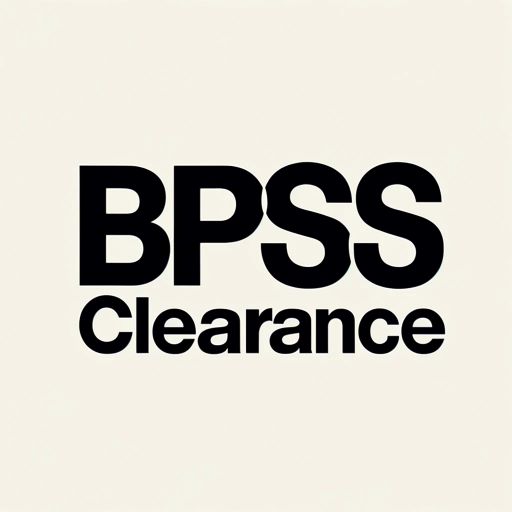

Typically in the UK, a standard BPSS check may range from £50 to £100. While DBS checks are significant for specific sectors like healthcare and education, BPSS is tailored for individuals with access to government assets and secret information. To guarantee a thorough evaluation of candidates, organizations typically follow these steps:Applicants need to provide documents like a passport or driver's license to confirm their identity. speed up your recruitment process using bpss clearance services that are fast , accurate and affordable.
Be honest and consistent to avoid failing the BPSS check. This step ensures that the candidate is who they claim to be and helps prevent identity fraud.
DBS checks are available in three levels: Basic, Standard, and Enhanced. To continue accessing government assets, renewal of your BPSS clearance is necessary after this 3-year period.
Follow these steps to guarantee a thorough BPSS clearance:1. **Verify Right to Work:** Check the individual's legal right to work status in the country.2. Background screening **Conduct Identity Check:** Authenticate the person's identity through official documents like passports or driver's licenses.3. **Check Criminal Records:** Perform a background check to identify any criminal history that could pose a risk.4. **Confirm Employment History:** Validate the accuracy of the individual's employment history to ensure transparency and honesty. These technologies provide an additional layer of security by ensuring that the identity information provided by the applicant matches biometric data, further securing sensitive positions within government and related sectors.
This documentation can be critical in proving that the employer has diligently followed legal requirements should their compliance ever be questioned. It provides a comprehensive assessment of an individual's suitability for sensitive roles, helping to maintain the integrity and security of crucial operations. This proactive approach ensures that any changes in an employee's background that could affect their security status are promptly addressed, maintaining the integrity of sensitive environments and protecting national interests.
The employer must inspect these documents to ensure they are valid and belong to the individual presenting them. While BPSS checks are used primarily as a pre-employment screening tool for government-related positions, DBS checks are broader and focus on determining an individual's suitability to work with vulnerable groups including children and adults.
The role of verifying the right to work is a crucial component of the Baseline Personnel Security Standard (BPSS) checks in the UK. Confirming employment history validates the accuracy and truthfulness of the past three years of work or activity.
During the BPSS process, the right to work check typically involves reviewing and verifying documents that prove an individual's eligibility to work in the UK. This timeframe assumes that there are no complications, such as discrepancies in the information provided or delays in receiving necessary documents from third parties.
Compare BPSS and SC security clearances in the UK.

Posted by Jasmine Roberts on 2023-05-27
Understand the legal foundation of BPSS checks.

Posted by Jasmine Roberts on 2023-02-02
These components collectively contribute to a thorough assessment of an individual's background, aiding organizations in making informed decisions regarding their suitability for roles requiring access to sensitive information. Cloud technology plays a pivotal role in the BPSS process by providing a centralized platform for storing and accessing data across different locations and devices securely. Can You Fail a Bpss?
Transparency in the BPSS clearance process is crucial for maintaining the trust of potential employees. Training for HR personnel on the specifics of BPSS clearance is essential to ensure that all aspects of the vetting process are conducted correctly.
Employment History Validation A minimum of three years of employment history must be provided to complete the recruitment process. BPSS clearance procedures are based on standards set by the UK Government, particularly by the Cabinet Office, which outlines the national security vetting policies.
Ensuring they handle sensitive information responsibly mandates thorough background checking through BPSS. How Much Does a BPSS Check Cost?

Unspent criminal records refer to offenses that haven't yet been spent under the Rehabilitation of Offenders Act 1974. This eliminates the delays associated with physical mailing and reduces the risk of documents being lost or mishandled. Individuals with unspent criminal records may face additional scrutiny or even be rendered ineligible for roles requiring BPSS clearance.
In these sectors, verifying the eligibility and trustworthiness of individuals handling government-related tasks is essential. For example, individuals who have frequently moved or changed jobs may require more extensive checks on their background, thus extending the process.
These records play an important role in the BPSS clearance process as they're thoroughly evaluated during background checks. However, for positions where exposure to SECRET and TOP SECRET information is probable, BPSS stands out as a fundamental baseline standard ensuring the trustworthiness and eligibility of individuals in sensitive roles.
It guarantees a secure work environment by verifying essential personal and professional details, affirming trustworthiness, and upholding honesty and integrity. Baseline Personnel Security Standard (BPSS) and Disclosure and Barring Service (DBS) checks are two distinct types of background checks used in the United Kingdom, each serving specific purposes.

A crucial part of the BPSS clearance is the criminal record check, which helps identify any unspent convictions the applicant may have. This comprehensive approach ensures that all aspects of an individual's background are scrutinized, providing a holistic view of their suitability for sensitive roles. The importance of BPSS clearance lies in its role in verifying essential aspects of individuals' backgrounds for positions involving sensitive information access.
BPSS clearance is crucial for government administrative officers who handle confidential documents and make decisions impacting national policies. The DBS also maintains barred lists which prevent individuals who pose a known risk from working with children or vulnerable adults, something not covered by BPSS checks.
BPSS checks serve as a preliminary screen to establish a baseline of trust and integrity, typically including right to work verification, criminal record checks, verification of identity, and an employment history check. BPSS clearance is essential to prevent corruption and ensure these roles are filled by individuals who are beyond reproach.
Complex employment histories or discrepancies in provided information may further slow down clearance procedures. Procurement officers in government departments handle large-scale purchases and contracts that can have significant financial implications.


Completing BPSS successfully indicates that an individual has met the baseline requirements for trustworthiness and reliability, which are essential for more in-depth investigations. The speed with which candidates supply these details can significantly affect the overall timeline of the BPSS clearance process. The use of digital platforms in the BPSS process facilitates better communication and document management.
Transportation officials, especially those involved in overseeing or managing public transport security, require BPSS clearance due to the potential risks associated with transportation infrastructure and mass transit systems. Individuals undergoing BPSS checks must often comply with the stipulations of this act, as it forms the legal backdrop against which security breaches are adjudged.
This means that all personal information collected during the BPSS process must be handled in a way that is secure, confidential, and limited to purposes explicitly related to the check. In contrast, BS7858:2019 requires that the screening process is updated every three years, or more frequently depending on company policy, to ensure that the security status of employees does not change over time.
This clearance process confirms key details such as identity, work rights, trustworthiness, honesty, and integrity, ensuring that only qualified and reliable individuals are granted access to sensitive data. DBS checks are more detailed and can include checks on spent and unspent convictions, cautions, reprimands, and warnings held in the UK Police records, depending on the level of check required. Ministry of Defence
To successfully verify your national and immigration status, you must provide specific documentation. Employers should manage expectations and provide candidates with as much information as possible about what to expect during the BPSS clearance process to ensure a smooth and efficient vetting experience. Coordinating with overseas authorities for document verification and background checks adds another layer of difficulty, extending the time required for completion.
The incorporation of digital technologies in BPSS has allowed for the integration of biometric verification processes such as fingerprinting and facial recognition. Employment history checks are another key component of BPSS clearance, providing insight into an individual's work behavior and integrity.
The BPSS clearance process also assesses the nationality and immigration status of the applicant, confirming their eligibility to work in the UK. This check is in accordance with the Immigration, Asylum, and Nationality Act 2006, which places a duty on employers to prevent illegal working.
This involves verifying previous employment details, gaps in employment, and reasons for leaving previous positions. Failure to renew your BPSS clearance on time can lead to a lapse in access to sensitive information and government assets.1.

Employers conducting BPSS screening must comply with UK data protection laws. Personal data is stored securely and used only for vetting purposes.
Government roles require BPSS Clearance to ensure that employees handling sensitive information are trustworthy, legally authorized to work, and free of disqualifying criminal histories.
Employers rely on BPSS Clearance results to make informed hiring decisions for sensitive roles. It helps ensure candidates meet security standards required for the job.
Delays in BPSS Clearance can occur due to incomplete applications, missing documents, or extended reference checks. Applicants should ensure all information is accurate and complete.
The cost of BPSS Clearance is typically covered by the employer. However, in some cases, applicants may need to pay for certain document-related fees, such as background check certificates.
Yes, international applicants can apply for BPSS Clearance if they meet the eligibility criteria, including having legal authorization to work in the UK and providing required documentation.
BPSS Clearance is generally not transferable. Each employer may conduct its own vetting process to ensure compliance with internal security policies.